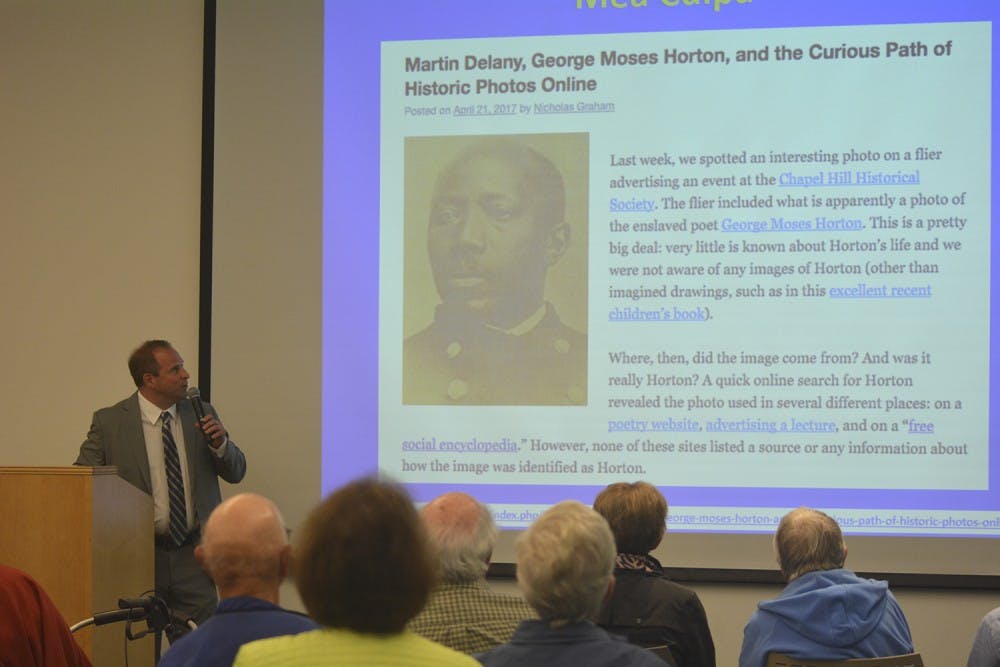Horton Residence Hall on UNC’s South Campus is named after the poet.
Patrick Horn, associate director at the Center for the Study of the American South, presented about George Moses Horton and his complicated relationship with a white writer in the Chapel Hill area, Caroline Lee Hentz.
Horn said he was asked to speak by the Chapel Hill Historical Society after a few members attended his Literary Tar Heel Tour through the UNC Visitors’ Center.
“As a lover of literature and English major, I am excited any time people want to learn about books and writers, and I think it’s an important part of our history that I wish more attention was paid to,” Horn said.
George Moses Horton could not read and write initially, but Hentz transcribed Horton’s poetry and became his teacher.
Hentz was a long-time champion of the South and supporter of slavery, but she advocated for Horton’s freedom.
Horn said the writers came together despite having very different life experiences.
Marion Horton, a descendent of George Moses Horton, attended the event with his wife. He said he was not aware of his relation to George Moses Horton until he was around 30 years old.



